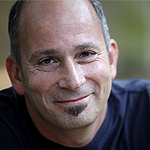Join JPI UE
Faq
FAQ
Please click here for the frequently asked questions we collected.
If you have an additional questions you are welcome to mail us at info@jpi-urbaneurope.eu
 Prof. Dr. Ir. Joop de Kraker is Professor of Sustainability Assessment at ICIS – International Centre for Integrated assessment and Sustainable development, Maastricht University and Project Coordinator for the SUGI project GLOCULL, Globally and Locally-sustainable Food-Water-Energy Innovation in Urban Living Labs.
Prof. Dr. Ir. Joop de Kraker is Professor of Sustainability Assessment at ICIS – International Centre for Integrated assessment and Sustainable development, Maastricht University and Project Coordinator for the SUGI project GLOCULL, Globally and Locally-sustainable Food-Water-Energy Innovation in Urban Living Labs.
You are the coordinator of one of the awarded projects in the SUGI call. Can you describe your experience so far in setting up an international consortium with partners from Europe, South Africa, Brazil and US?
– Setting up the consortium was rather easy, because we built on an established international network of university partners, NEPS (Network of Programs in Sustainability). The NEPS partners share a common approach, which involves action-oriented research with local stakeholders. So, it also was not too difficult to find a variety of non-academic local partners for the consortium.
What motivated you to enter the competition and to take up the challenges of such a complex partnership?
– We had good experiences with leading two previous Urban Europe projects, but this call was particularly attractive, due to the global coverage with the Belmont Forum. It was the first call for which our NEPS partners outside Europe qualified, and, even better, the call also matched our common approach of transdisciplinary action-research for sustainability very well.
What are your expectations on the outcomes from the project in terms of new knowledge, solutions to the food-water and energy challenges in cities and future research opportunities?
– Our project focuses on the local-to-global feedback involved in food, water and energy innovations. Nowadays, with the strong focus on local, urban innovations, this aspect has become somewhat neglected, but this is also what connects all local innovations across the globe. We expect that the project will result in a much better understanding of these interactions, and in practical tools for local actors to assess not only the local but also the global sustainability impacts of innovations.
What do you expect in terms of opportunities, benefits and hurdles of international research cooperation?
– Most partners in our consortium have been quite active over recent years in developing methodologies for urban living labs. This project is a great opportunity to learn from each other and develop a common methodology to be tested in our seven urban living labs across the globe. With urban labs in South Africa, Brazil, the US and Europe, the living lab experiments will be conducted under very different conditions. That will be a tough test for our approach, with many challenges for sure, but also an excellent learning opportunity